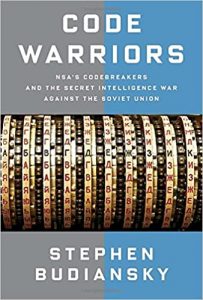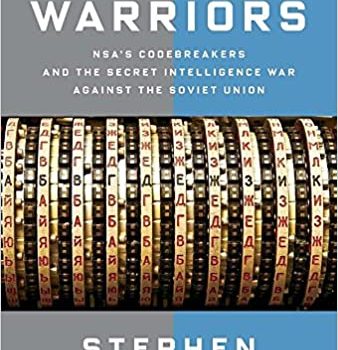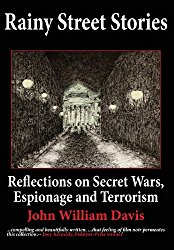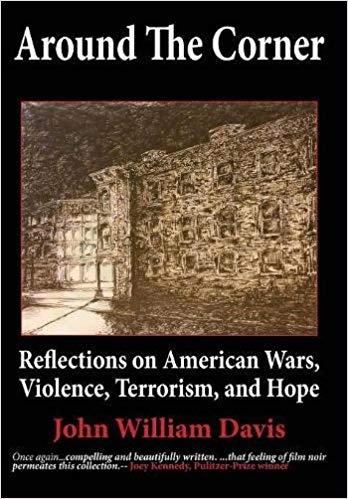Code Warriors, by Stephen Budiansky
Alfred A. Knopf: New York

Book Review by John Davis
The arts and sciences need for codes and code breaking are as old as man himself. The secret world they augur is one of mystery, but as Stephen Budiansky points out, one of law as well. America’s secret intelligence war against the Soviet Union was fought not by lawless agents behind the scenes, but by a disciplined, dedicated agency, the National Security Agency, or NSA. Budiansky is especially qualified to present this case, because he was foreign and security correspondent for no less than US News and World Report magazine, not to mention author, speaker, and academic cryptologist himself.
We follow the NSA through decades of its history, beginning in the midst of World War II, before it was organized from the various services’ signals intelligence units. Significant events such as early codes broken in post war Europe, to monitoring techniques and their evolution over the years, will satisfy the most arcane student of this subject. But he also writes with a verve and true enthusiasm for his subject which comes across in a lively, thought provoking, and informative manner for the layman.
We find for instance a remarkable panoply of secret activities detected as a result of the NSA’s efforts. Of course, because the agency is so powerful and helpful in the defense of the United States, it was itself targeted by espionage. Several of its personnel were targeted, little surprise in the intelligence personnel ‘population boom’ in the era shortly after the Korean War and subsequent Cold War confrontations. The story of the incredible Walker ‘family of spies’ is just one of the astounding tales revealed here.
On a strategic scale, it was able to provide factual information to our Presidents on a host of questionable conflicts…from the Soviet Union’s missile program, to middle eastern conflicts, to Asian flare ups, and many others. This broad, world based activity was needed to prevent war, as war could mean the end of civilization. Budiansky is not only a reporter of successes. He tells in great depth how the Tonkin Resolution, which led to our involvement in Vietnam, came about. We follow from the aspect of what information was available for LBJ to use in his decision making, to how that information impacted the national decisions which came about.
All in all, a good book for anyone interested in the technical world of electronic intelligence. Here is how it worked and what it means. In light of the revelations by Edward Snowden, which Budiansky also addresses, we learn how such an agency can be a factor for our future as a nation of laws, not men. Informative, thoughtful, and wise, Budiansky makes the NSA understandable.
~ Book Review by John Davis
Read More from John
John William Davis is a retired US Army counterintelligence officer and linguist. As a linguist, Mr. Davis learned five languages, the better to serve in his counterintelligence jobs during some 14 years overseas. He served in West Germany, Italy, and the Netherlands during the Cold War. There he was active in investigations directed against the Communist espionage services of the Soviet Union and Warsaw Pact. His mission was also to investigate terrorists such as the Red Army Faction in Germany, the Red Brigades in Italy, and the Combatant Communist Cells (in Belgium) among a host of others.
His work during the Cold War and the bitter aftermath led him to write Rainy Street Stories, ‘Reflections on Secret Wars, Terrorism, and Espionage’ . He wanted to talk about not only the events themselves, but also the moral and human aspects of the secret world as well.
And now recently published in 2018, John continued his writing with Around the Corner: Reflections on American Wars, Violence, Terrorism, and Hope.
Two powerful books worth reading.
Read more about them in the following Six Questions:
Six Questions with John Davis: Author of Rainy Street Stories



